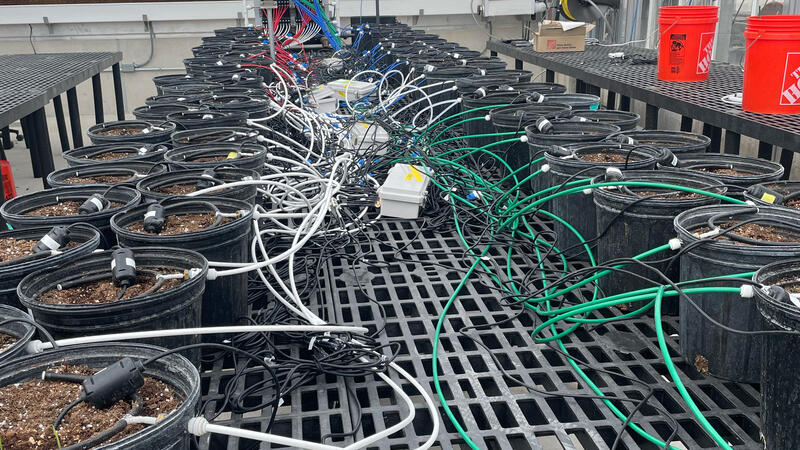News
Sustainable Bioenergy Cropping Systems
Timing is everything: How drought affects switchgrass
Scientists evaluated how switchgrass responded to drought stress at distinct stages of development — vegetative growth, flowering, and when leaves and shoots die off in the fall (senescence) — and the effects on fermentation of plant sugars. The findings suggest that the timing of drought stress has little impact on plant size but does change fermentation rates. Drought during the growing stage can make plants more hardy at the expense of biofuel production, while late-season drought enhances ethanol yields.
When Kevin Myers needed computer software to support his biological investigations, he taught himself to code. Now he’s sharing that knowledge with others.
The Great Lakes Bioenergy Research Center has selected staff scientist Avery Vilbert as the recipient of the center’s second annual Yaoping Zhang Bioenergy Research Award for her work in the lab and beyond.
Scientists used machine learning, a type of artificial intelligence, to study how different yeasts protect themselves from harmful molecules that can limit industrial production of bioproducts like fatty acids. The study identified two key groups of genes and provides a framework for using machine learning to identify genes related to traits of interest across many species.
Elise Rivett was researching nitrous oxide (N20) when she discovered a problem with the model long used to trace the source of this potent greenhouse gas.
As a biochemist, Rivett lacked a background in mathematics. Undaunted, she developed a new equation and figured out the coding to update the model.
GLBRC hosted a two-day conference to bridge traditional disciplinary divides and define a roadmap to guide lignin-based research over the coming decade.
Undergraduates, fellow grad students, postdoctoral researchers – and even her own advisor – credit Amy Enright Steinberger for her support in and out of the lab, which applies bacterial genetics to address critical issues in the bioeconomy and antimicrobial resistance.
Non-food crops like switchgrass are a promising source of plant-based fuels like ethanol and isobutanol, which can be produced by microbes. But switchgrass grown during droughts has high levels of chemicals that limit how much sugar these microbes can convert to alcohol. This experiment shows that breaking down switchgrass with ammonia, water, and enzymes and then lowering the acidity of the resulting hydrolysate solution both improve fermentation and biofuel production from switchgrass, especially when grown in drought conditions.
An enterprising group of scientists are working to bring their discoveries from the lab to the world of commerce.
Over more than three decades, federal agencies including the Department of Energy, National Institutes of Health and National Science Foundation have supported Brian Fox's efforts to study that basic biological chemistry — and to engineer changes to organisms that can benefit humanity.
The Great Lakes Bioenergy Research Center has recognized eight members for their contributions to the center’s mission through science, public engagement, entrepreneurship, leadership, and service. Look for stories about each of the award recipients to be published in the coming weeks.





